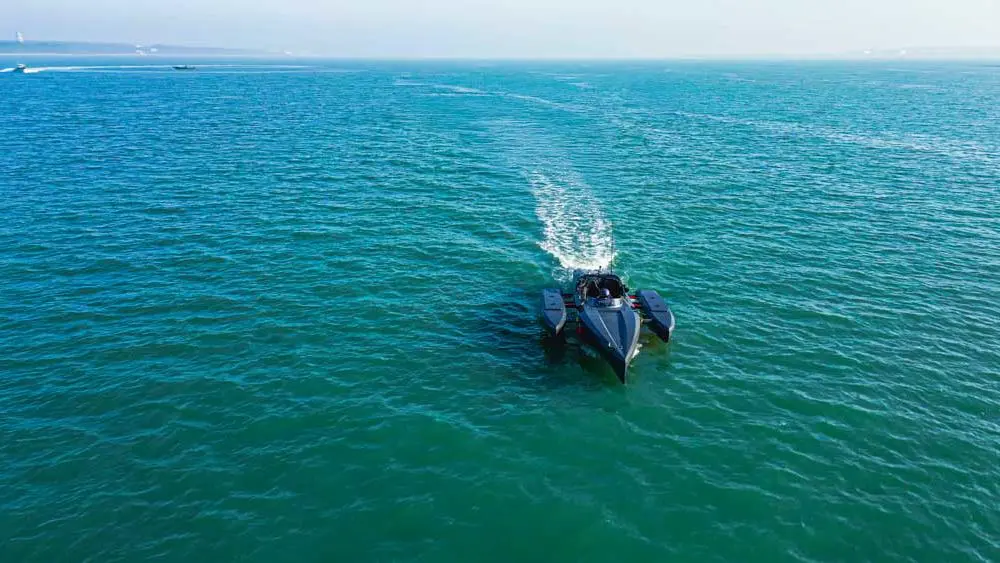
TriFoiler Demonstrator Proves Cost Reduction Potential of Electric Fast Ferries
Electric trimaran vessel successfully concludes initial sea trials on Southampton water.
12 June 2025
11 October 2022
To celebrate Maritime UK Week (10 - 16 October) our experts are taking a look at some of the sector’s current hot topics. Dr Laurie Wright, Associate Professor Marine Sustainability, looks at maritime decarbonisation.
According to the International Chamber of Shipping there are more than 50,000 merchant ships operating across the oceans transporting about 90% of world goods. Without this vital industry many of the products we enjoy from food to furniture, to cars and beyond would be unavailable. The continuing demand for globally manufactured goods has resulted in a new generation of ‘super-sized’ ships, with the largest of these vessels a massive 400m long and over 60m wide. These ships consume fuel not by litres, but by tons per hour.
Shipping is an efficient way of transporting goods when compared with alternatives (e.g. air, road), but it is responsible for a vast amount of global greenhouse gas emissions and air pollution. The shipping industry accounts for an estimated 3% of total human carbon dioxide (CO2) emissions – about 940 million tonnes of CO2 - and significant proportions of other air pollutants. To place this in context, if the global shipping industry were a country, it would rank 6th and have comparable emissions of CO2 to Germany and Brazil.
Under a business-as-usual scenario the demand for seaborne freight is expected to triple by 2050 (compared to 2015), part of up to a massive 1209% increase in total global maritime traffic. Without intervention emissions totals will increase on a similar trajectory. The predicted increase in activity would increase emissions up to 17% of total global greenhouse gas emissions. Taking all this into account emissions from ships need to be cut by 75%-85% per ton-mile (the movement of one ton of cargo over one mile of distance) to meet the goals of the Paris Agreement and help avoid the worst consequences of climate change. In pursuit of this goal the International Maritime Organization's (IMO) has set an ambitious strategy is to reduce total GHG emissions from shipping by 50% compared to 2008 levels by 2050.
The global maritime industry is by nature globalised and highly complex; additionally, the international oceans are one of the least regulated areas of the planet. Together this presents unique but not insurmountable challenge. Currently the fuel most used in ships are basically the waste products left over from the crude oil refining process. Essentially the same product used to surface roads, it is so thick that it must be heated before it can be pumped into an engine. Finding viable alternatives to these fuels are essential.
There are several promising alternatives, including ammonia, methanol, hydrogen, and nuclear; but there is no single route to achieving the required greenhouse gas emissions reductions. The reduction of emissions from these alternative fuels varies widely depending on the source of the fuel and the method of production. Indeed, some alternatives derived from fossil fuels can increase overall emissions; instead shifting emissions elsewhere in the supply chain. Additionally, with a typical lifetime of 25-30 years, many of the ships built today will be in operation in 2050, even where vessels are constructed with alternative fuels in-mind, the retrofit work required to convert them will not be trivial.
Currently there is no single fuel which can deliver the required emissions reduction, in a cost-competitive manner compared to conventional petroleum-based marine fuels. Achieving the necessary emission reductions can only be achieved by taking a system-wide perspective creating an effective policy to promote the adoption of alternative propulsion technologies.
Find out more about Laurie here.
